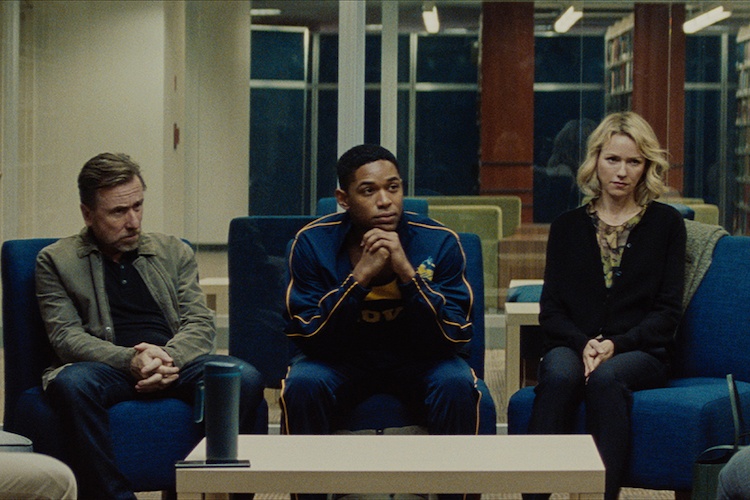Here’s the thing about movie endings that are intentionally left open to interpretation: They only work if the audience leaves the theater believing (correctly or otherwise) that the writer and/or director did in fact secretly have an ending in mind. Especially where thrillers are concerned: Catch one too many red herrings on your fishing line and the whole thing could snap.
That’s the essential problem with Luce, director Julius Onah’s Neon-distributed adaptation of J.C. Lee’s heralded 2013 off-Broadway play. Kelvin Harrison Jr. alternates between charismatic and chilling (is there always a difference?) as Luce Edgar, a high-achieving high school senior trying to figure out his place in the world. Born in war-torn Eritrea, Luce was eventually adopted by wealthy white parents and whisked off to Arlington, Va., as a young man, where he was aided in “casting off the darkness” (paraphrasing his adoptive mother’s problematic language) that marked his early years as a child soldier.
Luce’s adoptive parents, Amy (Naomi Watts) and Peter (Tim Roth), are almost a parody of well-meaning but self-deluded liberal white Americans who vocally condemn racism without acknowledging their complicity in the system that perpetuates it. (Also, they seem to be functioning alcoholics with a taste for red wine.) Amy in particular never seems to question her own white-savior motives for adopting a child from Africa, and she firmly believes that any PTSD Luce could have had from his early life is a thing of the past (presto!), thanks to her involved parenting and the years of therapy she and Peter arranged for him.
As captain of his high school basketball team, a champion debater, and a popular straight-A student, Luce is constantly being held up by his teachers, school administrators, coaches, and parents as a true American success story — the perfect example of how high an individual from an underprivileged background can rise with the right mentality. But what these (mostly) well-meaning people fail to see is the strain they put him under by viewing him this way, and how money plays into the situation. Luce has seen this firsthand, as he watches another student — a black young man (Brian Bradley) from a less-affluent family — lose his shot at a lucrative basketball scholarship when a nosy black teacher searches his locker and finds marijuana in it.
It turns out this teacher, Ms. Wilson (Octavia Spencer in her second standout role this year), has a habit of searching black students’ lockers without permission. She’s soon calling Luce’s parents into the office to confront them about a paper bag full of illegal explosives she found at the bottom of his locker. This revelation — teamed with a shadowy story about a possible sexual assault of a young woman (Andrea Bang) that took place at a party Luce attended — sparks conflict between Amy and Peter, who have differing opinions on how they should handle the situation. Strange things begin to happen, and suddenly the pair begin to wonder whether Ms. Wilson is right in her assessment of Luce: Could they be living with a sociopath?
Onah and Lee (who worked together on the script) clearly enjoy setting up the myriad twists and turns they throw at the audience, but it feels like it’s often at the expense of developing their characters — especially Luce, who is left more or less a cipher and should be the most interesting character in the film. This commentary on perception, projection, and the unknowability of others is compelling and timely; it just ultimately feels more suited to the stage.



